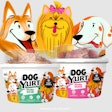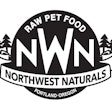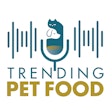
Among the three largest pet food manufacturers, ingredients represent the highest portion of their carbon emissions, far outpacing any other contributor such as production, packaging and even transportation.
According to data shared by Nick Rozzi, Ph.D., worldwide director of development for Hill’s Pet Nutrition, pet food ingredients comprise 57% of the CO2 emissions, on average, for his company as well as for Mars Petcare and Nestle Purina, based on publicly available data. Production accounts for 9%, packaging for 12% and transportation for 19%, with an “other” category at 3%.
Rozzi presented as part of a sustainability panel during the American Feed Industry Association’s (AFIA) 2023 Pet Food Conference on January 24, 2023, during the International Production & Processing Expo in Atlanta, Georgia, USA. Other panelists included Temis Coral, a senior sustainability consultant, and Terry Ward, Ph.D., global director of strategy and sustainability for Zinpro, an ingredients supplier. Lara Moody, executive director of the Institute for Feed Education and Research (iFeeder), moderated the panel.
Sustainability most important to pet food manufacturers
To frame the discussion, Moody presented results of an AFIA survey of its members showing that 77% of pet food manufacturers who responded consider sustainability to be very important to their companies (a mean of 9.1 on a 10-point scale). This surpasses the importance ranking from other member categories, including commercial feed manufacturers (the largest category), equipment manufacturers, integrated feed manufacturers and support products and services.
Among ingredient suppliers or manufacturers, which might serve the pet food or feed industry, or both, 51% consider sustainability to be very important.
The survey, along with interviews of other stakeholders in the animal feed value chain, revealed that drivers for sustainability include customer demand, quality data, transparency, international influence (for example, through market access) and investor and downstream expectations.
Earlier that day, another speaker—Worth Turner, CEO of Custom Veterinary Services—also discussed investor expectations for sustainability in a presentation on mergers and acquisitions. He listed investing in sustainability as one way for a company seeking to be acquired to increase its perceived value to buyers or investors.
Data is key to reaching sustainability goals
The AFIA survey also indicated challenges that members face or foresee in implementing sustainability programs and initiatives, such as alignment across the value chain, resources to support sustainability, interoperability of data, not knowing where to start and not understanding the business case for sustainability.
Data appeared on both the challenges and drivers lists, and Rozzi spoke to that. “Mind your data,” he said. How you handle data is critical, he explained, including not only measuring and collecting it but also organizing it, storing it, understanding where it came from and its validity.
In terms of data, Rozzi shared publicly stated CO2 reduction goals for his company and its top two competitors:
- For Colgate-Palmolive (which Hill's is a subsidiary of), reduce Scope 1, 2 and 3 emissions by 90% by 2040, against a 2020 baseline
- For Nestle, achieve 20% emissions reduction by 2025, 50% reduction by 2030 and net zero emissions by 2050 (at the latest)
- For Mars, determine a “science-based climate target to achieve net zero greenhouse gas emissions across its full value chain by 2050”



















